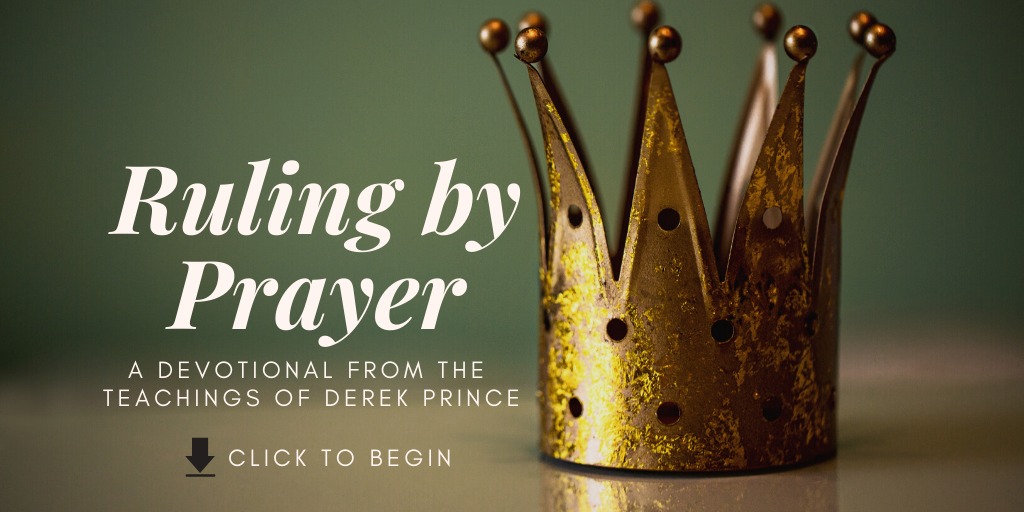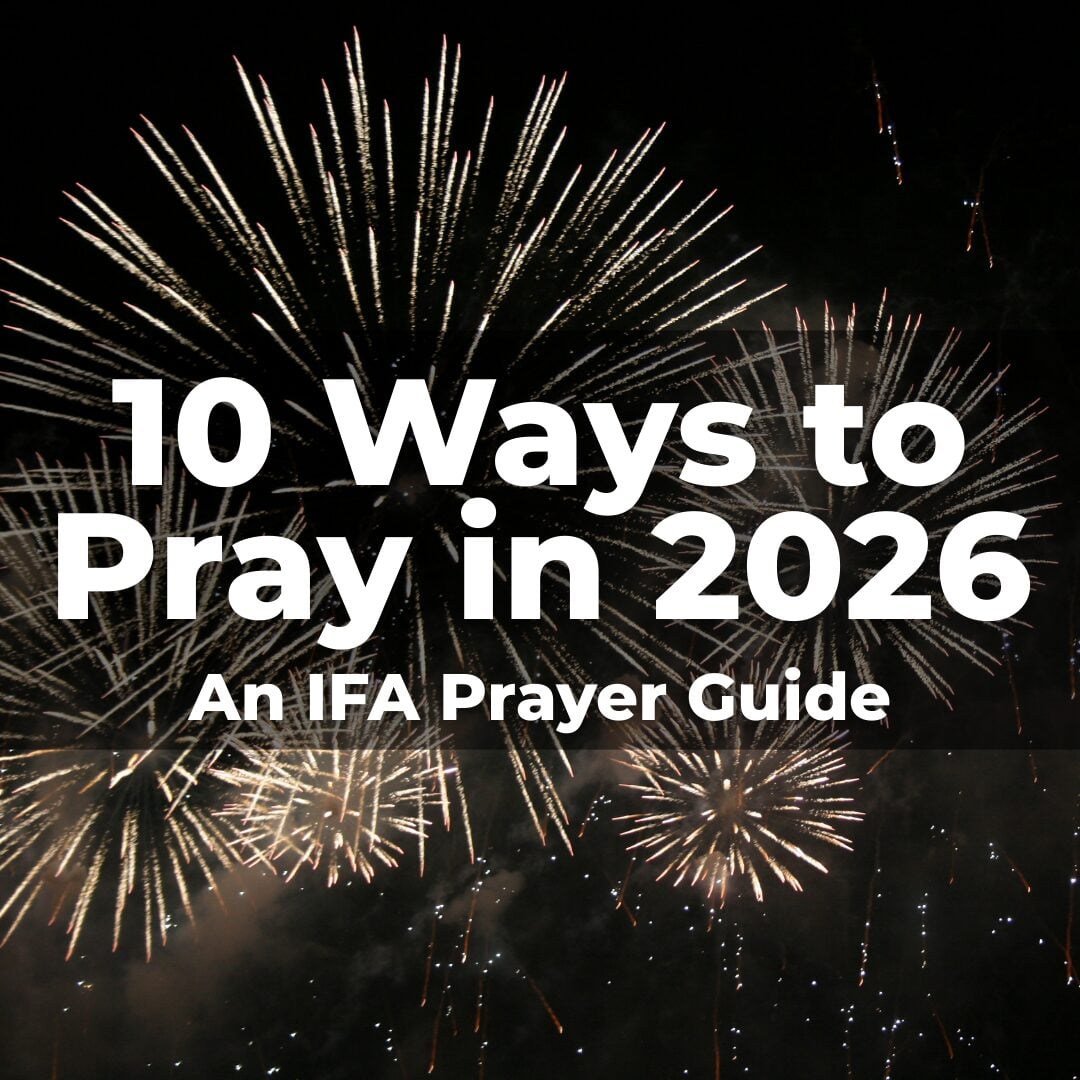Delighting in the Lord’s Feasts
Delighting in the Lord’s Feasts
Many Gentile believers have little understanding of the spiritual richness of the feasts of the Lord (see Leviticus 23), and they may have even been taught that these are “Jewish” feasts and therefore not valid for the whole Body of Messiah. But as Holy Spirit has taught my heart about these feasts, I’ve encountered such joy, depth of revelation, and rich understanding of the word and of Yeshua that keeping them has become not a duty but a delight.
This content is supported by your donations.
These are God’s “appointed times” (Hebrew moed) and I don’t want to miss any appointments with Him! As with most things in my spiritual walk, I wish to keep these holy days and festivals in the power of the Spirit, and not in the tradition of man.
The Feast of Weeks — Counting the Sheaves to Shavuot (Pentecost)
Last year at this time, I penned an article clarifying the whys and wherefores of celebrating Passover for the Gentile believer. Some questioned my delineating between Jew and Gentile, since we are now in the day of the one new man — the merging of those two groups in Christ: the tearing down of any barrier or dividing wall (see Ephesians 2:14–18). I did so with the understanding that though there is now no male or female (Galatians 3:28) in the Spirit and in His Body, there are nevertheless differences that are important and valued as characteristics for each group.
Passover, First Fruits, Unleavened Bread, and Omer
Immediately after Passover on the biblical calendar — sundown April 5 to sundown April 6 this year — comes Firstfruits (one day) and Unleavened Bread (eight days). Overarching both, and connecting us directly with Shavuot (Pentecost), is the Counting of the Omer.
“You shall count seven full weeks from the day after the Sabbath, from the day that you brought the sheaf of the wave offering. You shall count fifty days to the day after the seventh Sabbath. Then you shall present a grain offering of new grain to the LORD” (Leviticus 23:15–16).
The Hebrew word omer means a measure of grain or a sheaf. Leviticus 23:15–21 instructs us that an omer of new grain is to be waved before the altar on each of the 49 days between Passover and Shavuot, culminating in two full loaves waved on the last day. Prior to these offerings, only grain from the last harvest may be eaten.
This is the firstfruits connection: Only crops first dedicated to God through thanksgiving and acknowledgement that He is the Giver of all good things are considered “kosher” and thus ready for use. The firstfruits of the harvest were representative of the entire harvest and therefore consecrated. Yeshua was that human sheaf, our firstfruits of those risen from the dead (see 1 Corinthians 15:20,23). He then ascended to the Father to present Himself as the firstfruits offering.
Every evening from the second night of Passover to the night before Shavuot a blessing is spoken that literally counts down the days to Shavuot. The blessing is recited as follows: “Blessed are You, LORD our God, Master of the universe, Who has sanctified His commandments and commanded us to count the Omer … ” — and beginning with the first day, each day thereafter is counted off.
After the destruction of the Jerusalem temple in A.D. 70, the Jewish sages divested the holiday of its agricultural aspects and declared Shavuot a commemoration of the giving of the Torah on Mount Sinai. The prayer became the observance, and it became a time of repentance as the giving of the Law was anticipated. We now know that the exact day on which the giving of the Law on Sinai was commemorated, Holy Spirit was poured out in the upper room in Jerusalem — in effect, the writing of the Law on the hearts of those gathered there (see Acts 2). Since Shavuot is the ultimate consummation of Passover, we can take time praying each day to sanctify ourselves for personal revelation by engaging in these seven weeks of counting the omer.
In his online teaching about Sefirat HaOmer (counting of the omer) John J. Parsons writes: “The new covenant makes the Law — Hebrew ‘Torah’ — a matter of the heart written by God’s Spirit, yielding a life fruitful in the liberty given to us through the love and the grace of the Lord Yeshua our Messiah” (“Counting the Sheaves to Shavuot,” Hebrew 4 Christians).
What to Do, Then?
Should followers of Jesus, whether Jew or Gentile, count the omer? The point of the omer count is to foretell the giving of Holy Spirit and confirm the new covenant of God. The physical redemption process that began at Passover was indeed completed at Shavuot with the outpouring of the Holy Spirit. That completion is the revelation of God’s love and deliverance for the whole earth.
After the destruction of the temple, a tradition arose in which, on the final night of omer-counting, the priest waves two loaves of leavened bread before the Lord. Up to this point, no leaven has been allowed, symbolizing our need to be free from sin. These loaves are a prophetic picture of the one new man — Jew and Gentile, as one in Messiah — neither being sinless in themselves, but each needing the blood of the Passover Lamb to remove every impurity and to make us both holy and righteous. Counting the Omer is about being clothed with the Ruach HaKodesh (Holy Spirit) to experience and know the resurrected Lord of glory!
It is fascinating to note that all of Yeshua’s post-resurrection appearances occurred within the days of the omer-counting, culminating in His ascension on day 40 and His command to his followers not to leave Jerusalem until the promise of the Father was fulfilled (see Luke 24:50, Acts 1:9–12).
So how do I, personally, count the omer? Several years ago, as we came into this season, I was inquiring of the Lord how best to acknowledge Him in this activity, and Holy Spirit highlighted to me the 50 days. As an immigrant to this country, and not yet a citizen, I had been learning about and praying for the nation where the Lord had planted me, as well as seeking its good (see Jeremiah 29:5–7). As Holy Spirit highlighted the number 50, I thought of the 50 states and decided to pray for each one in alphabetical order, using a children’s atlas titled Our Fifty States, by National Geographic, as my text. I prayed for the Holy Spirit to be poured out on each state and its leaders, for each state to receive a spirit of adoption instead of an orphan spirit, and I prayed into each state’s motto and the meaning of each state flag. As different news items came up during the 50 days, I prayed specifically for the state involved.
Another idea would be to pray for the states in the order that they came into the union. It felt to me like waving each one before the Lord as I asked Him to bless, to save, and to bring each state into the fullness of its destiny. A great resource for this would be Dutch Sheets’ and Chuck Pierce’s 2005 book, Releasing the Prophetic Destiny of a Nation.
The Holy Spirit is God, the Creator of the universe, and He is not limited by the tradition of man or religion, but He loves to help us honor His word. Let’s ask Him how to honor His word — His appointed time — in this Passover to Shavuot season.
Pray with me:
Father of Lights, Giver of all good things, we desire to meet with You in a fresh way during this feast season. Show each one of us how to keep the feasts through joy, delight, and honoring Your appointed times. Reveal to us more of Yourself as we count the days, thanking You for our nation and for Your provision. In Yeshua’s name. Amen.
(Note: I owe much of what I understand about the biblical feasts to various teachers over the years, including Dean Bye, director of Return Ministries International; Kenneth Eberly, of Behold Your God Ministries; Robert Heidler, of Glory of Zion Ministries; and John J. Parsons, of Hebrew for Christians.)
Has this article inspired in you a fresh view of the Lord’s feasts? Share it with others!
Lori Nicole Meed (Bachelor of Science; Bachelor of Education, Special Education) is a wife, mother, and grandmother who home-schooled her now adult children. In 2004, God moved her family from Canada to the U.S., imparting His heart for the U.S. and for revival. Having walked out her own journey of freedom after being radically born again in 1992, Lori has a heart to see others set free to walk fully in their destiny. She is a leader of an inner-healing and deliverance ministry at her home church in Pennsylvania. She also gathers and equips prayer groups for the U.S. and Israel. Lori has a passion for teaching on Aliyah (the return of the Jews to Israel), the feasts of the Lord, and the rich connections of the gentile churches to Israel. She is a prayer leader on IFA’s Headline Prayer, as well as being a contributing writer. Photo Credit: Timothy Eberly on Unsplash.
Partner with Us
Intercessors for America is the trusted resource for millions of people across the United States committed to praying for our nation. If you have benefited from IFA's resources and community, please consider joining us as a monthly support partner. As a 501(c)3 organization, it's through your support that all this possible.


We use cookies to ensure that we give you the best experience on our website. If you continue to use this site we will assume that you are happy with it. Privacy Policy





Comments
Fascinating article
I have a lost a son and his wife and 7 grandchildren who decided to learn and partake in the feasts. But that was not enough. The Law, the Torah, then was also needed to be followed! Many Christians who began to observe these things, have left the Law of Grace and intertwined themselves with the Old Covenant and entered the Law thinking they need to do both. Beware! You can learn, you can participate but be mindful of Galatians that states we are in a New Covenant!
Counting Omer does NOT NOT NOT begin on the second day of Passover. To say so misses the most glorious truth of Leviticus 23.
The priest was to wave the sheaf “on the day after the Sabbath.” Jesus rose on the “first day of the week”, which is the day after the Sabbath. The Feast of Firstfruits in Passover week points to the Resurrection of Jesus. Jesus is our firstfruit.
If you count Omer from the second day of Passover, Pentecost will seldom be on a Sunday. Counting from the day after the Sabbath means it will always be on a Sunday.
Five of the feasts have a calendar date. Why do Firstfruits and Pentecost not have a calendar date? Because it is floating, always landing on a Sunday.
Please preach and teach this truth whenever you can.
This is the first year my family will be keeping the Passover feast. Looking forward to learning more and becoming more in tune with YHWH and Holy Spirit and Yeshua during this time.
God Bless you!
I too delight in observing God’s appointed times as Holy Spirit leads. It is an awesome privilege to be grafted in to spiritual Israel, and partake of the blessings it brings.